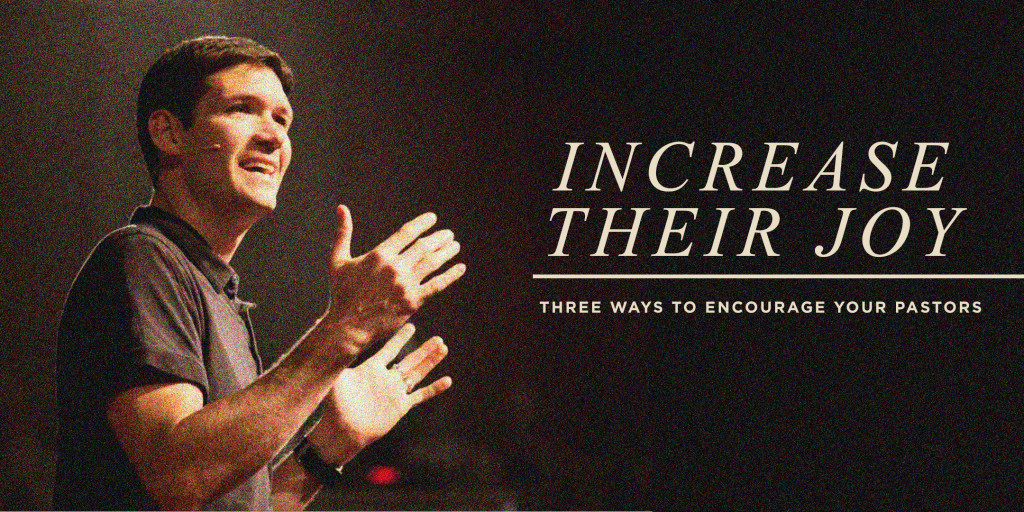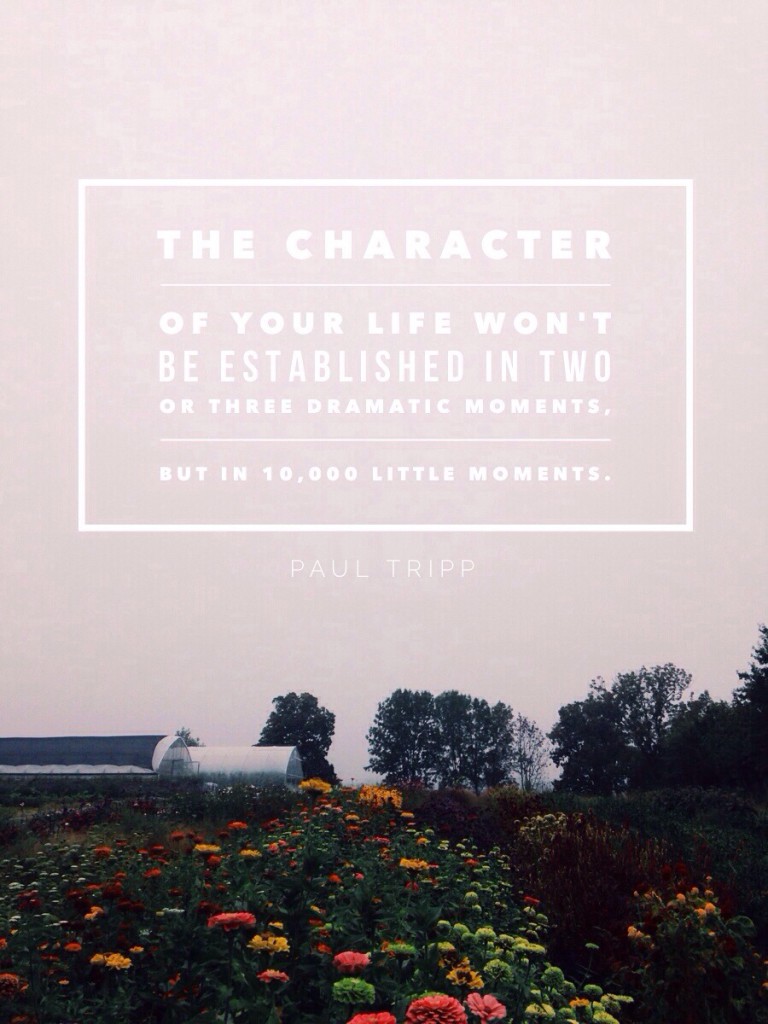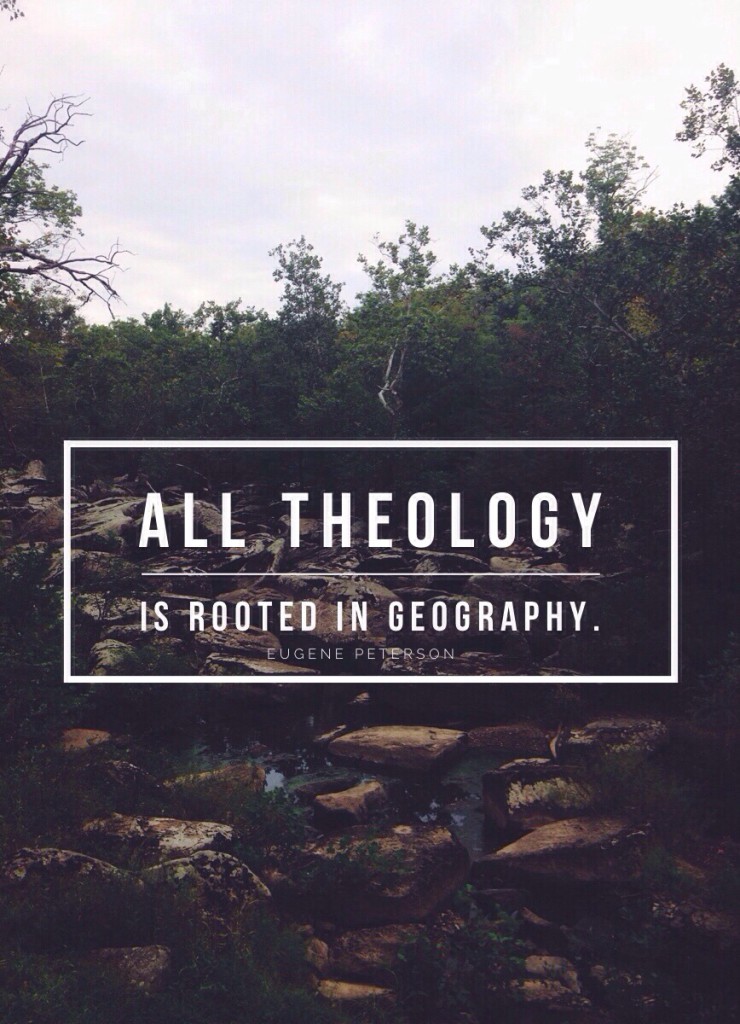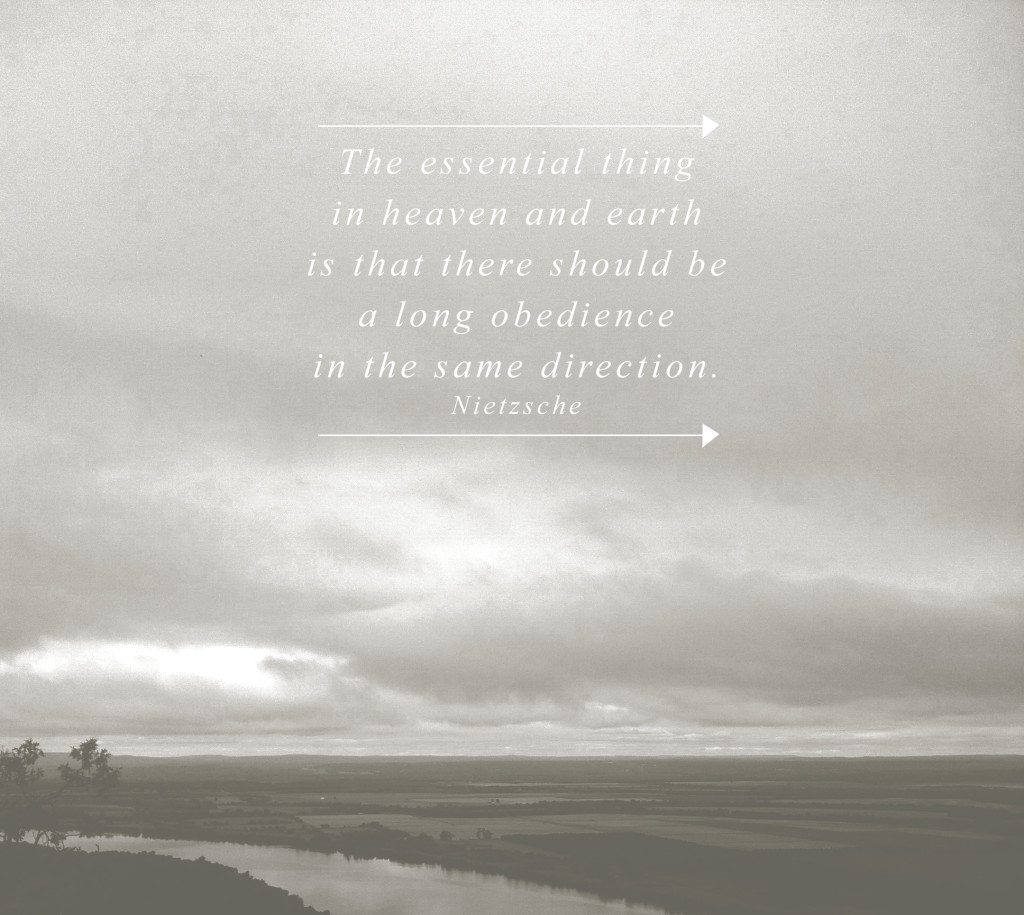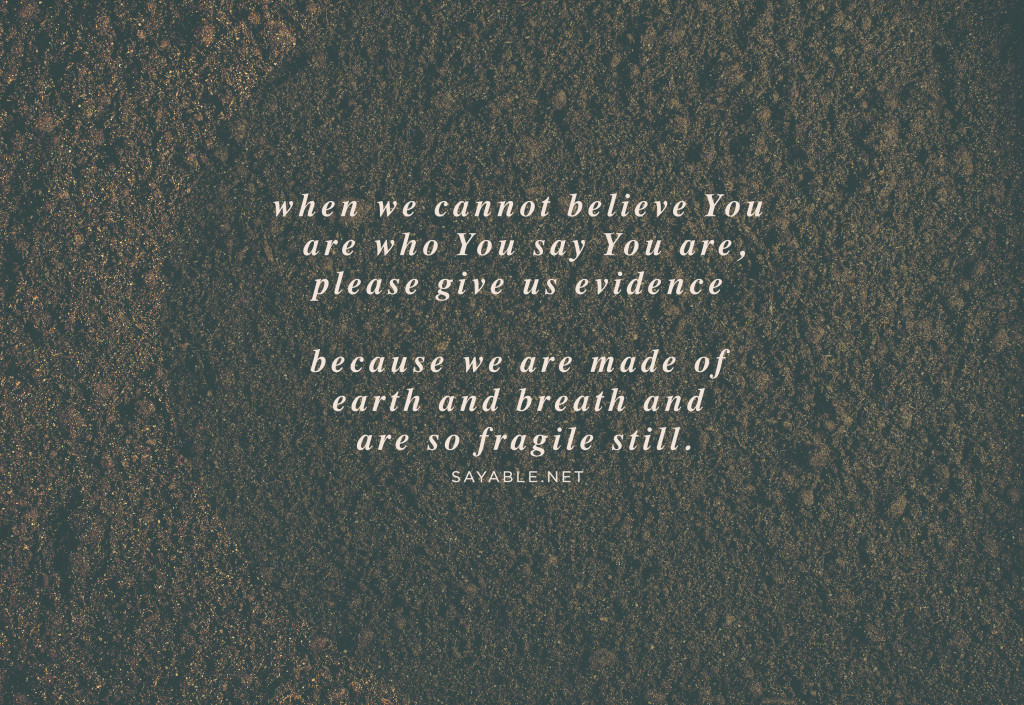Hemingway said, "The world breaks everyone, and afterward we are strong at the broken places." I wrote that quote on an index card when I read it in high school and didn't know how prophetic it would prove to be in my life.
Who has believed our report?
And to whom has the arm of the Lord been revealed?
For He shall grow up before Him as a tender plant,
And as a root out of dry ground.
He has no form or comeliness;
And when we see Him,
There is no beauty that we should desire Him.
He is despised and rejected by men,
A Man of sorrows and acquainted with grief.
And we hid, as it were, our faces from Him;
He was despised, and we did not esteem Him.
Someone said, a few years ago, "Teach your kids they're broken, deeply broken," and the internet swarmed and stung in response. No one wants to believe deep inside the horrible, awful, no good truth. That the gears inside of me will keep getting stuck and rusty, jamming up in inopportune places and too small spaces. No one wants to believe the brokenness on the outside points a terrible truth about the inside.
Surely He has borne our griefs
And carried our sorrows;
Yet we esteemed Him stricken,
Smitten by God, and afflicted.
But He was wounded for our transgressions,
He was bruised for our iniquities;
The chastisement for our peace was upon Him,
And by His stripes we are healed.
All we like sheep have gone astray;
We have turned, every one, to his own way;
And the Lord has laid on Him the iniquity of us all.
It's not a prosperity gospel to believe that the brokenness on the inside of us results in wars and rumors of wars, gunned down black boys on city streets, cancer, and genocide. It is not a transactional brokenness: you broke me, so I'll break you. Or, more honestly, I broke me, so He breaks me more. But it is a cause and effect of sorts. Deeply broken people don't turn the other cheek, not only in war, but also at home when the floor doesn't get swept and it's his turn to do the dishes and someone was uncaring or uncouth. It starts with the small fractures and leads to the tremors and quakes until we are all shattered pieces and wondering how we got here.
He was oppressed and He was afflicted,
Yet He opened not His mouth;
He was led as a lamb to the slaughter,
And as a sheep before its shearers is silent,
So He opened not His mouth.
He was taken from prison and from judgment,
And who will declare His generation?
For He was cut off from the land of the living;
For the transgressions of My people He was stricken.
And they made His grave with the wicked—
But with the rich at His death,
Because He had done no violence,
Nor was any deceit in His mouth.
The world does break everyone and it is not for nothing to say we are stronger at the broken places. I heard it said recently that good eschatology says "The bad gets worse, the good gets better, and the mushy middle is done away with." I groan for that and so do we all.
The mushy middle is what breaks us, that pliable and soft already/not yet we live in. We groan for the culmination of the kingdom, the new heaven, the new earth, but we're still here, where missiles fall every four minutes and Christians claw their way into a helicopter from an Iraq hilltop, and journalists are tear-gassed and officers act hastily, and my friend has a tumor and it's cancerous, and where the tears won't stop falling this morning because we are broken, yes, it is true. We are deeply broken.
But, on our behalf, so was he.
Yet it pleased the Lord to bruise Him;
He has put Him to grief.
When You make His soul an offering for sin,
He shall see His seed, He shall prolong His days,
And the pleasure of the Lord shall prosper in His hand.
He shall see the labor of His soul, and be satisfied.
By His knowledge My righteous Servant shall justify many,
For He shall bear their iniquities.
Therefore I will divide Him a portion with the great,
And He shall divide the spoil with the strong,
Because He poured out His soul unto death,
And He was numbered with the transgressors,
And He bore the sin of many,
And made intercession for the transgressors.




